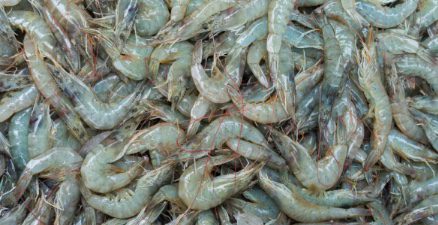
‘Dangerous and abusive” conditions found in India’s shrimp industry
The insatiable demand for shrimp in Western countries has led to the rapid expansion of hatcheries and processing plants across traditional farming communities in India. However, according to a recent investigation by AP, not only are the new hatcheries and processing plants contaminating the water and soil making it almost impossible to staple grow crops like rice, they also hide exploitative working conditions bordering on modern slavery.
Murky ponds, toxic algae, sewage and chemicals
Endemic poverty, debt, and unemployment are challenges faced by communities all over India, with many making just enough to stave off starvation. So, when shrimp companies like Nekkanti, Wellcome KingWhite, and Rich Products who supply major U.S. stores such as Walmart, Target, and Sam’s Club wanted to set up shop, offering jobs and investment, community members and village leaders thought this could be a golden ticket. However, the reality for many of these communities has been environmental disasters and labor exploitation.
One farmer, Areti Vasu, participated in failed protests against the development of a shrimp processing and cold storage plant next to his rice field. Now he says he is “lost” due to the massive, murky ponds and their toxic algae and the chemicals and sewage which have made it impossible for him to grow his crops anymore.
Vasu lamented:
“Our lives, our land, our farming pride, fresh air, and clean water – everything is lost. We are destined to live here in disgrace.”
Koyya Sampath Rao, vice president of Jonnalagaruvu village, was one of those initially in favor of the shrimp industry coming to his village but he ignored the warnings from environmentalists before the installation. Today, Rao sees things very differently as the village’s water is now polluted, their farmland is barren due to chemical runoff and the air is always thick with pollutants from the plant.
